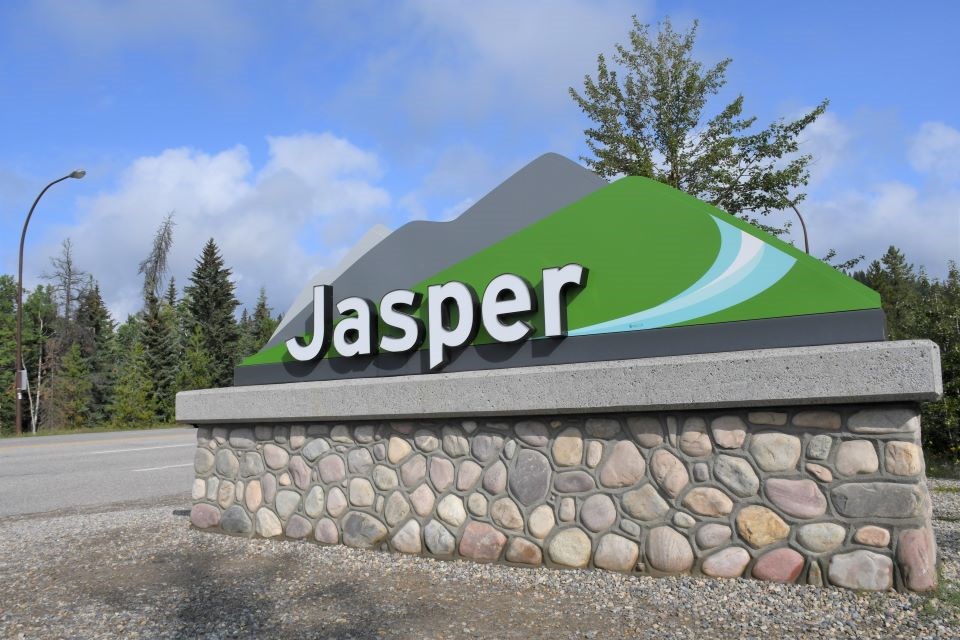JASPER – Municipal council is backing multiple proposed amendments to Jasper’s land-use policy to help increase housing density and address the long-term housing shortage that the wildfire has exacerbated.
Council, however, unanimously decided not to endorse removing the minimal parking requirements for new residential developments after multiple residents spoke against it during the public hearing on Tuesday (July 8). This is a continuation of the June 17 public hearing.
“Densification without parking is ludicrous,” said Dwain Wacko.
Under Jasper’s current land-use policy, each primary dwelling unit requires a minimum of one parking stall. Administration proposed removing this requirement to increase the number of housing units and allow property owners the freedom to decide how much parking they need.
According to recent community engagement, 65 per cent of respondents were either “uncomfortable” or “very uncomfortable” with the proposal, while only 28 per cent were “comfortable” or “very comfortable.”
Art Laurenson noted that car use would only increase in Jasper in the coming years, especially when considering the town's remote location and tourist visitation.
“To try and build things that involve limited parking or restricted parking or reduced parking makes absolutely no sense to me,” Laurenson said.
He also warned that removing this requirement will allow developers to maximize the square footage of living space for profit and include few, if an,y on-lot parking stalls.
“The parking problem still exists, but it’s just now it’s out on the street, and we all have to deal with it,” Laurenson said.
Andrea Ziegler encouraged council to manage residential parking, such as a permit system, and look to other jurisdictions for solutions.
“I think there’s a clear economic reward to having fewer parking spots on the property that you develop, dumping the parking into the public good, which is street parking,” Ziegler said. “But I do think while we necessarily might have over-indexed on parking and some of the development in the past, I think there is a risk, with what I’ve heard, that we under-index right now.”
As the Municipality of Jasper is still in the process of taking over land-use authority from Parks Canada, council can currently only recommend land-use amendments to the superintendent. Administration expects Parks Canada will adopt these amendments.
Following the public hearing, council discussed the proposed amendment and agreed to maintain the current restrictions, although it suggested Parks Canada could give variances to larger developments if they provided “creative solutions” to parking.
“I do believe we have to have some parking requirements,” said Coun. Helen Kelleher-Empey. “Otherwise, we’re going to create chaos.”
Coun. Scott Wilson said they had already rolled back parking requirements enough, noting how garden and garage suites did not require any stalls.
Coun. Ralph Melnyk added how the motion provided flexibility to developers for larger projects that can help Jasper move forward with densification without exacerbating the already difficult parking situation.
“I do agree that moving to remove any minimum parking requirements would be very detrimental as we redevelop, and we’d be opening the gate, letting the horses out and not being able to get them back,” Melnyk said.
Some amendments that council did recommend include creating general policies for accessory dwellings, permitting secondary suites in the multi-unit small lot dwelling district (R3a), permitting garden and garage suites in more residential districts and allowing row housing along the ground level of apartment buildings.
It also recommended developing a policy for bike parking for multi-unit dwellings and apartments, increasing the maximum site coverage for garage and garden suites, allowing one garage suite and one garden suite per primary dwelling, increasing the maximum eaveline height of multi-unit dwellings in R3a and increasing the height of apartment buildings to four storeys in the multi-dwelling district (R3b).
Council decided not to create a new residential district for six-storey apartment buildings at this time, particularly amid concerns about allowing this on the current RCMP lot in the middle of town.
Kelleher-Empey was supportive of six-storey apartments on either end of town but not in the centre.
“I don’t see how that works,” she said. “We’re kind of losing the heritage of Jasper, the small-town feel. It becomes kind of like concrete jungle in the middle of town.”
Council moved to combine similar residential districts, but the six-storey apartment building district will be determined at a later date.
When it came to allowing multi-unit dwellings in more residential districts, some councillors were concerned this would impact the character of Old Town Jasper Historic District and the Cabin Creek neighbourhood.
Coun. Scott Wilson argued that this proposal only allowed for row housing, and this kind of development would likely not occur in these areas unless lots were combined.
The initial motion was defeated after a tie vote, with Coun. Rico Damota absent. Instead, council approved only allowing multi-unit dwellings in the one-unit and two-unit dwelling districts.
Council also declined to allow three storeys of residential above the first floor of commercial buildings, since the business community has long advocated for more commercial accommodation in Jasper.
Paul Butler, executive director of the Jasper Park Chamber of Commerce, wrote in a letter to council that a modest increase to commercial accommodation, which he described as “under-built” in Jasper, would invigorate the economy and support resident services.
“It’s important that in our determination to solve Jasper’s long-term housing shortage, we do not overbuild, or build in areas better suited to other uses,” Butler wrote.
One proposed amendment was to change one-unit dwellings to discretionary use, except for homes destroyed by natural disasters, which would incentivize developers to consider adding more housing units to their lots.
Kelleher-Empey opposed this, since she did not want to impede that right for property owners. No motion was made on the proposed amendment.




